
Labor Day is almost here, marking summer’s end. Whether you’re grilling, swimming, or spending time with loved ones, let’s appreciate the hardworking people who contribute to Michigan’s future. My team and I have been busy with community events and meeting with constituents over the last couple of months. Meeting with residents helps me better advocate for you when I return to Lansing for the fall session.
As always, if you or someone you know would like to provide any feedback about what’s happening in Lansing, or needs assistance of any sort, please feel free to reach out to my office. You can contact me by sending an email to SenMMcMorrow@senate.michigan.org or calling 517-373-2523.
Sincerely,

Mallory McMorrow
State Senator
District 8
Legislative Updates
Keeping our Workers Front and Center this Labor Day and Always

This Labor Day, I hope you’ll join me in reflecting on the hardworking individuals who build up Michigan every day, from our educators to our homecare workers, our skilled tradespeople to our first responders.
Last year, the Senate passed powerful legislation to strengthen and protect workers’ rights, repealing the state’s harmful anti-union law, reinstating prevailing wages and more. And so far, this year, we have continued that progress.
In the 2025 state budget passed last month, $2.5 million was approved for the creation of the Community and Worker Economic Transition Office. Established by the Michigan Department of Labor and Economic Opportunity, this office will develop proactive strategies that help companies and Michiganders take full advantage of the high-tech, high-paying jobs coming to the state in the auto and energy sectors.
The new state budget also included $52 million in continued support for Michigan Reconnect scholarships, enabling workers to go back to school to pursue a degree or a skilled trade certification.
Building on last year’s momentum, several other bills to uplift our workers are making their way through the legislature. Some of those include:
- The MIOSHA maximum penalties package, Senate Bills 829–830, will enhance workplace safety by bringing Michigan’s maximum penalties for MIOSHA violations up to par with federal levels. This package has been passed by the Senate and awaits further consideration in the House.
- A new set of bills to strengthen Michigan’s child labor laws was introduced this summer. Senate Bills 963–965 would increase penalties and fines for businesses found employing minors illegally or subjecting them to unsafe working conditions; transfer the authority to issue work permits for minors from the Michigan Department of Education to the Michigan Department of Labor and Economic Opportunity (LEO); and establish a new Youth Employment Standards Act registration system under LEO for the employment of minors.
- Senate Bills 790–791 would restore the right of 35,000 independent provider home care workers to have the choice to form a union, create access to training for caregivers, and more. This package passed the Senate this past June and awaits further consideration in the House.
- Prevailing wage protections have been extended to essential wind and solar projects statewide through Senate Bill 571. Officially signed into law last month, this legislation ensures fair compensation and safeguards the skills and safety of our workforce.
Adopt and Amend Legislation
The Michigan Supreme Court recently ruled that the 2017 Republican-led legislature’s use of “adopt and amend” to gut the successful ballot initiative to increase the minimum wage and paid leave in Michigan was unconstitutional. Michigan’s minimum wage now is $10.33 per hour and less for workers in restaurants and other tip industries. Beginning on February 21, 2025, Michigan’s minimum wage will rise above $12 per hour.
The Supreme Court said a new wage schedule, adjusted for inflation as determined by the state treasurer, will take effect next February and then go up in subsequent years. The law will also gradually eliminate a lower minimum wage for tipped workers in restaurants.
Starting February 21, 2025, tipped workers will make 48% of the adopted minimum hourly wage. They will increase to 60% of the minimum hourly wage in 2026, 70% in 2027, and 80% in 2028. By 2029, tipped workers and other staff will have the same minimum wage. Read more here.
Ensuring All Students Have Access to Safe Drinking Water
Staying hydrated is part of good nutrition, which is crucial for student success during the academic year. Our Filter First legislation (Senate Bills 88 and 89) that passed into law in 2023 requires all Michigan schools and childcare centers to implement a Drinking Water Management Plan, including installing and testing filtered bottle-filling stations or filtered faucets on outlets designated for drinking water. By the end of the 2025-2026 school year, all Michigan schools will have approved water filters on all fixtures used for students’ drinking water.
This legislation has widespread support from health and environmental experts. No parent should have to worry about their child being exposed to lead poisoning at school or daycare, just as no student should have to worry about the quality of water coming out of their drinking fountain.
Back-to-School Budget Signed
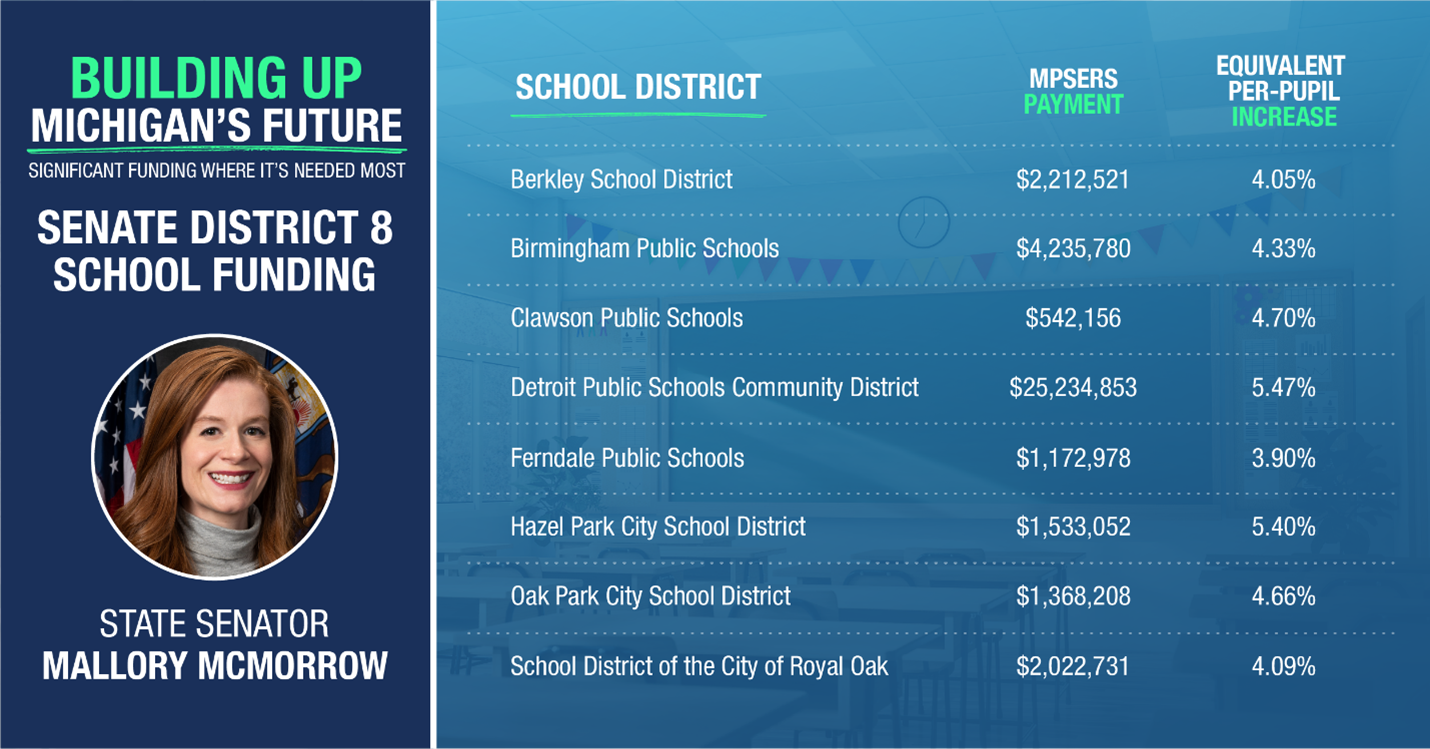
In late July, Gov. Gretchen Whitmer signed the K-12 budget for the 2024-25 school year. This budget continues to put Michigan students and educators first, helping to set our kids up for futures full of success and opportunity. As students across Michigan head back to the classroom, I am excited to see how our state education budget positively impacts our students, teachers, parents, and communities. Last year, the Senate began the popular free breakfast and lunch program for all Michigan public school students — and in this year’s budget, we continued this critical program to ensure that Michigan’s 1.4 million public school students are well-fed and able to focus on learning. More information about the free breakfast and lunch program can be found here.
Our education budget also implements the state’s first-ever “Opportunity Index” equity funding formula that strategically invests more dollars into districts based on their concentration of poverty, prioritizing students and schools with the highest level of need.
We also delivered on the promise of two years of free community college for high school graduates, helping improve access to higher education and better paying jobs. This ensures that every Michigan high school graduate, beginning this year, can obtain an associate degree or skilled certificate tuition-free, saving over 18,000 students up to $4,820 annually.
Michigan Senate Democrats remain committed to meeting the needs and interests of students, educators, and families in every corner of our state, and we look forward to another school year full of learning, growth, and opportunity for our kids.
Signed into Law: State Budget Dedicated to Building Up Michigan
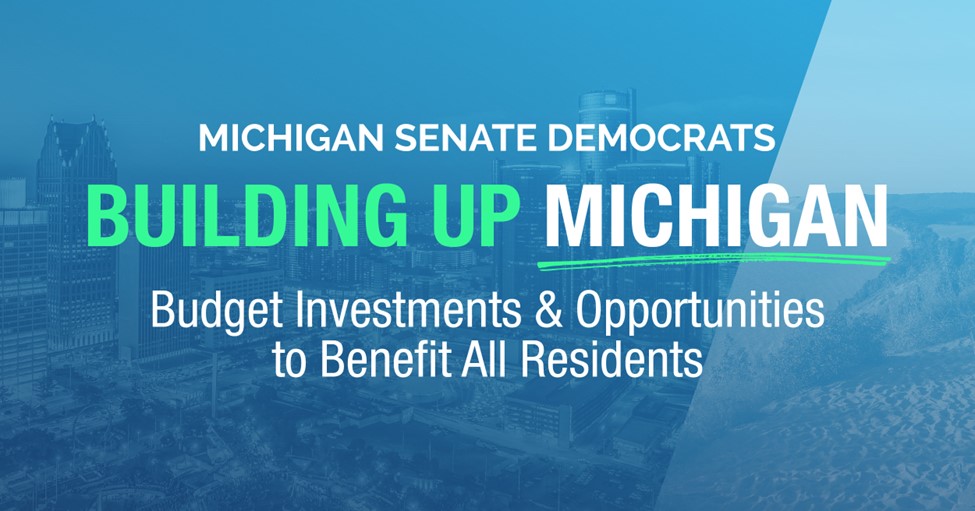
Last month, Gov. Gretchen Whitmer officially signed the Fiscal Year 2025 state budget into law, building on last year’s transformative budget by continuing to invest in children and families, students and workers, public safety, community development, and more.
The Senate views the state budget as both a values statement and a financial plan. Our cornerstones for the 2025 budget — transformational, innovative, equitable, and intentional — reflect the priorities established last year.
Read more here.
News You Can Use
Back-to-School Newsletter

It’s back-to-school time! I hope you had a nice summer and are ready for the new school year. As your state Senator and as a mom myself, I’m committed to supporting our kids. Here is a link to my Back-to-School newsletter that was recently mailed out. In it you’ll find updates on universal free meals, safe drinking water, classroom support, and accessible college training. Have a great year!
Families are Encouraged to Enroll 4-Year-Olds Now in Pre-K

It’s not too late for families to enroll their 4-year-olds in free, high-quality pre-K through their local school district. The recent historic investment in Pre-K for All included in the state’s new budget will allow nearly 59,000 four-year-olds across the state to access free pre-K. As of August 15, enrollment has expanded to all families regardless of income level, while continuing to prioritize families who need it most.
Under the FY 2025 budget, free pre-K enrollment was open to families up to 400% of the federal poverty limit, or about $120,000 for a family of 4. As of August 15, school districts and other pre-K providers may open enrollment to families, depending on availability.
Families still have time to enroll children who will be 4 years old by Dec. 1 in pre-K this fall! Availability varies by location, with priority given to those who need it most. Visit MiPreKforAll.org to find programs near you.
Gov. Whitmer Announces Call for Applications for PitchMI, a Statewide Startup Pitch Competition
Gov. Gretchen Whitmer recently announced that applications are officially open for PitchMI, a statewide shark tank-style pitch competition. Michigan’s Growth Office will invest $100,000 in one innovative solution that transforms the way Michiganders get from point A to point B safely, affordably and efficiently. PitchMI is a commitment by the state to spur entrepreneurial problem solving, connect innovators with capital and create a ripple effect to accelerate more innovation.
The PitchMI competition is scheduled to take place Thursday, October 24 at 2:30 p.m. during the Office of Future Mobility and Electrification’s inaugural MI Future Mobility Conference at Newlab in Detroit. Applicants for PitchMI must be available to participate in-person. PitchMI is open to pre-seed, seed, Series A, and Series B companies with 51% of their employees residing in the State of Michigan. Solutions should be demonstration ready with working prototypes.
PitchMI drives momentum behind the Growing Michigan Together Council’s strategy to position Michigan as the innovation hub of the Midwest and the go-to state for scaling businesses across America. Michigan is home to the highest number of engineers is the U.S. and is a top state for patents. Identifying and addressing gaps in the innovation ecosystem will help retain and attract talent, scale companies and create high-paying jobs per the Council’s report.
The deadline to apply for PitchMI is Monday, September 16 at 11:59 p.m. ET.
For more information and to apply, visit: growingmichigan.org/opportunities.
Reflecting on Women’s Equality Day
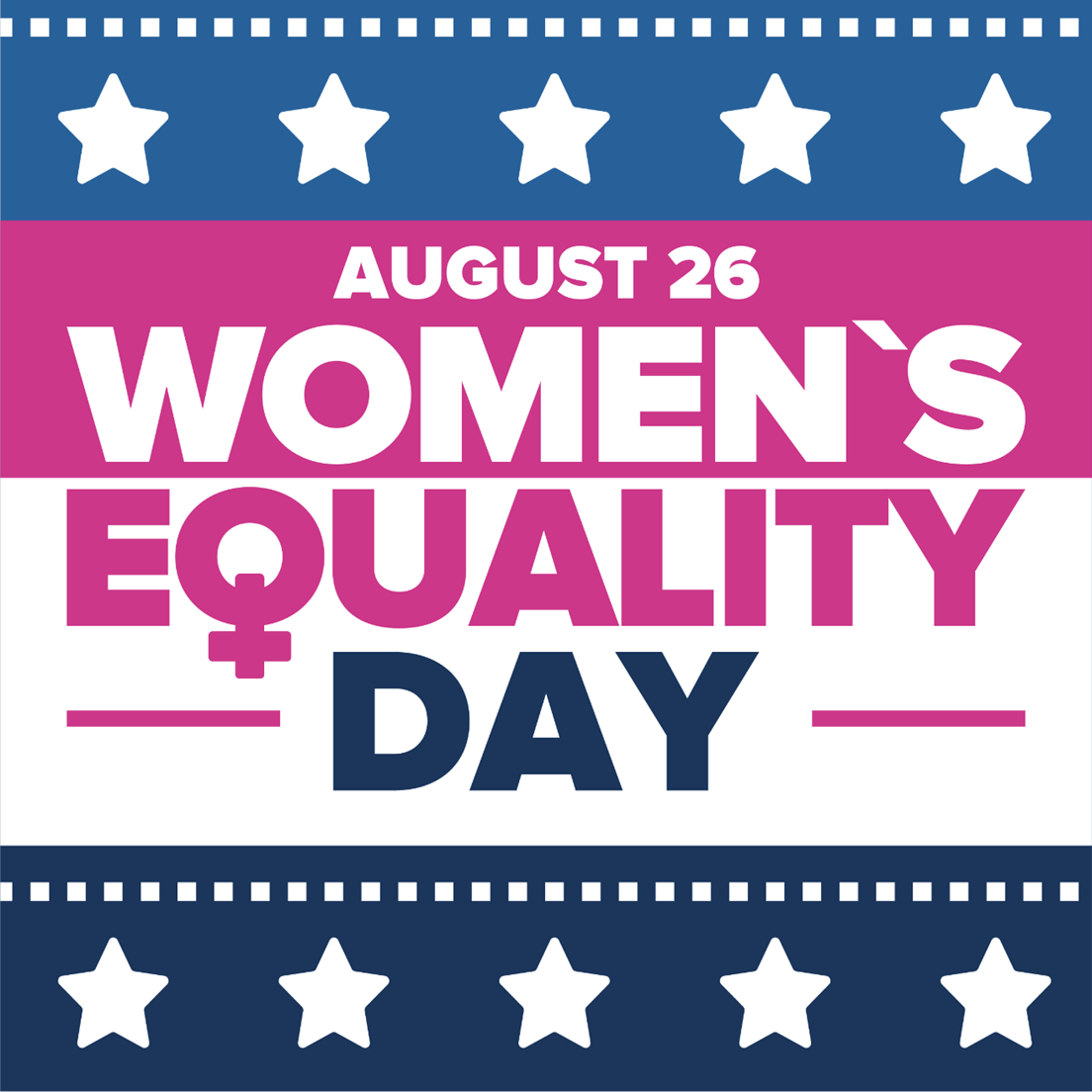
Women’s Equality Day marks the adoption of the 19th Amendment, which granted women the right to vote. It’s a chance to celebrate the brave women and their allies who fought and sacrificed to win this right for themselves and for future generations of women.
Now more than ever, we must recommit to protecting voting rights and accessibility for all. The work that the Senate has been able to accomplish, with the help of voters, has been a crucial asset to protecting voting accessibility in Michigan, such as passing and enacting Proposal 2 of 2022.
Women’s Equality Day is also a great time to shine a light on the representation of women in the political arena, something which Michigan has made significant progress in over the years thanks to several trailblazing women leading the way.
While progress has certainly been made in advancing women’s rights, there is more work to do. From the workplace to accessing health care and education, women — especially women of color — continue to face discrimination and harassment on a regular basis. This is unacceptable. Women’s rights are human rights. I will always fight to advance gender equity in the state of Michigan.
Dept. of Energy Awards $18 Million to Michigan to Help Small Suppliers Modernize Their Manufacturing Capabilities
Two weeks ago, Gov. Whitmer announced that Michigan will receive $18 million from the Dept. of Energy (DOE) to help small- and medium-sized automotive companies modernize their capabilities to manufacture electric vehicles.
Michigan’s funding accounts for more than one-third of the $50 million grant program, which was created in direct response to a proposal submitted by the Dept. of Labor and Economic Opportunity (LEO) last year recommending DOE create a program for small suppliers and medium-sized auto suppliers. This investment allows Michigan to develop a domestic and diversified EV supply chain, retain high-quality, good-paying jobs, meet the goals of the MI Healthy Climate Plan and support the Biden-Harris administration’s goal of having 50% of all new vehicle sales be electric by 2030.
According to the Center for Automotive Research, Michigan is home to over 1,000 independent automotive suppliers, and 140 of these suppliers and over 45,000 of their workers may need to retool their facilities and convert from making ICE vehicles or components to EVs. The $18 million in funding will further position Michigan as a leader in clean energy jobs and manufacturing and ensure the state remains a leader in the automotive industry.
The DOE, along with the U.S. Dept. of Labor, has also designated Michigan as an EV Workforce Hub in partnership with LEO to ensure Michigan workers have equitable access to high-quality training, education and services that provide a path to a good career without leaving their community.
The Bipartisan Infrastructure Law and Inflation Reduction Act, coupled with Gov. Whitmer’s historic clean energy legislation, have created an unprecedented opportunity for Michigan to advance a clean energy future. This funding, in tandem with bipartisan economic development tools, is growing the middle class, creating good-paying, in-demand manufacturing jobs, bringing supply chains home, and lowering energy costs for families.
Shining a Light on Substance Use Disorder & Remembering Those Lost

Saturday, August 31, is Overdose Awareness Day here in Michigan and globally. It’s an opportunity to raise awareness about the risks of overdosing, honor the individuals whose lives have been lost, and acknowledge the grief felt by families, friends, and the community.
Substance use disorder (SUD) has wrought devastating effects on individuals and families across Michigan. In 2023, 2,820 individuals died from a drug overdose in Michigan and, of those deaths, 74.3% were opioid involved.
The Michigan Dept. of Health and Human Services (MDHHS) encourages the public to end the stigma surrounding substance use disorder, acknowledging that isolation, discrimination and prejudice are obstacles to social inclusion and can prevent people who are struggling with SUD from seeking help and maintaining sobriety.
MDHHS shares that you can contribute to reducing stigma and promoting social inclusion by:
- Treating people affected by substance use disorder with respect.
- Learning about the science of mental health conditions.
- Correcting others who have misconceptions about substance use disorders and mental illnesses.
- Supporting resources for people affected by mental illnesses.
- Share End the Stigma campaign materials.
Learn more about their End the Stigma campaign on their website, such as suggested language to rework the narrative on this subject, how to talk to a loved one with a SUD, and more.
Substance Abuse and Mental Health Services Administration (SAMSHA) National Hotline
If you or someone you know needs help with opioid use disorder, call the SAMSHA National Hotline, a 24-hour, 365-day-a-year, treatment referral hotline: 1-800-662-HELP (4357)
To find more information and resources regarding substance use disorder, including additional ways to find help for yourself or a loved one, click here.
Power Outage Form
Michigan Attorney General Dana Nessel encourages all residents who are experiencing power outages to fill out the power outage form following the recent thunderstorms across metro Detroit. You can fill out the form here.
Safe Driving Tips as New School Year Begins
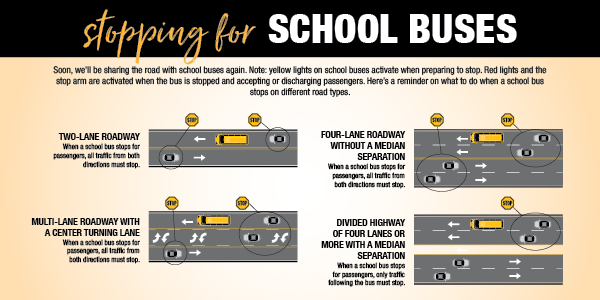
We are now sharing the road with school buses again. Here are some quick tips to remember when you see a school bus stopping for students to board.
Remember, yellow lights on school buses activate when the bus is preparing to stop. Red lights and the long stop arm are activated when the bus is completely stopped and accepting or discharging passengers.
Here’s a reminder on what to do when a school bus stops on different road types.
- Two-lane roadway
- When a school bus stops for passengers, all traffic from both directions must stop.
- Multi-lane roadway with a center turning lane
- When a school bus stops for passengers, all traffic from both directions must stop.
- Four-lane roadway without a median separation
- When a school bus stops for passengers, all traffic from both directions must stop.
- Divided highway of four lanes or more with a median separation
- When a school bus stops for passengers, only traffic following the bus must stop
In the Community
Detroit Coffee Hour

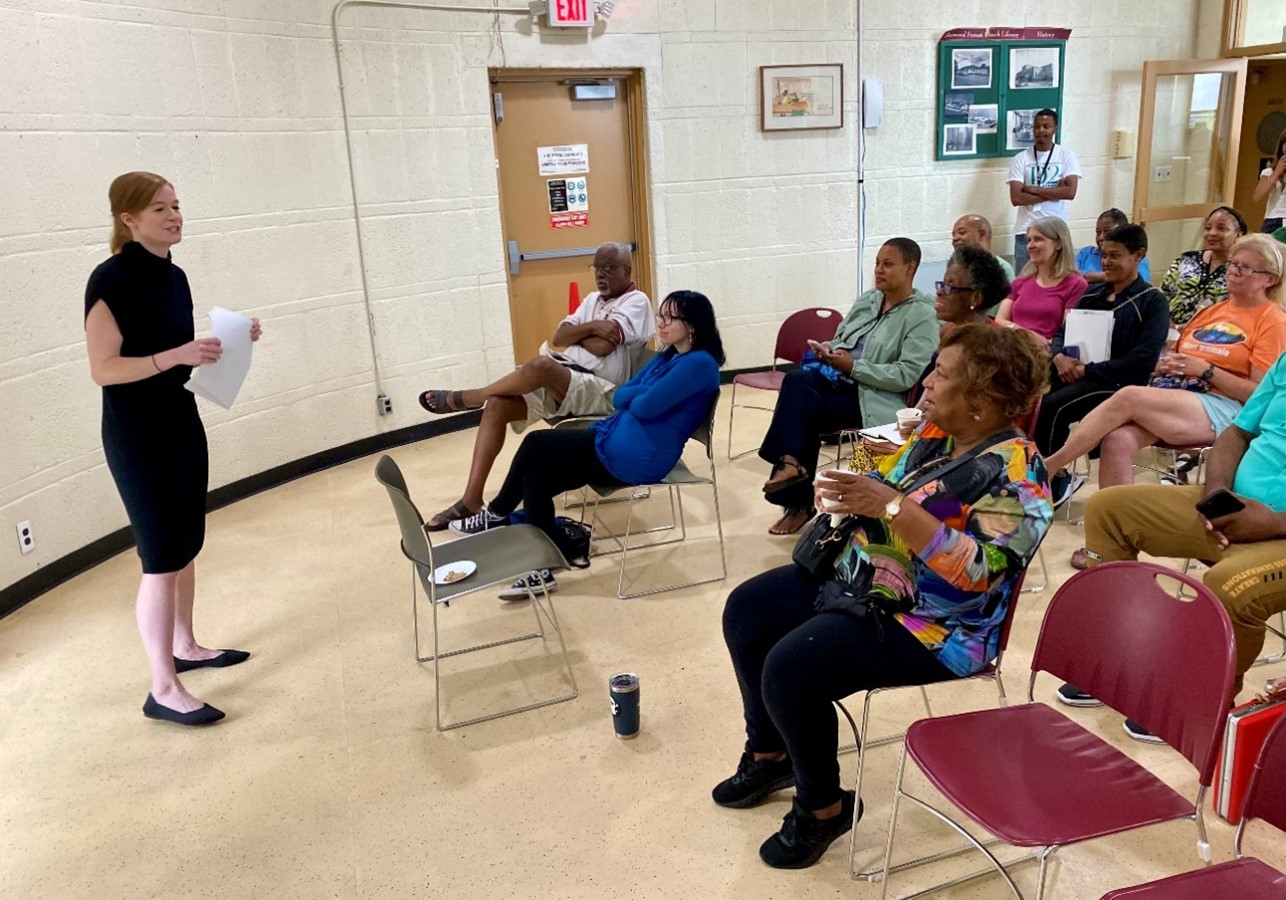
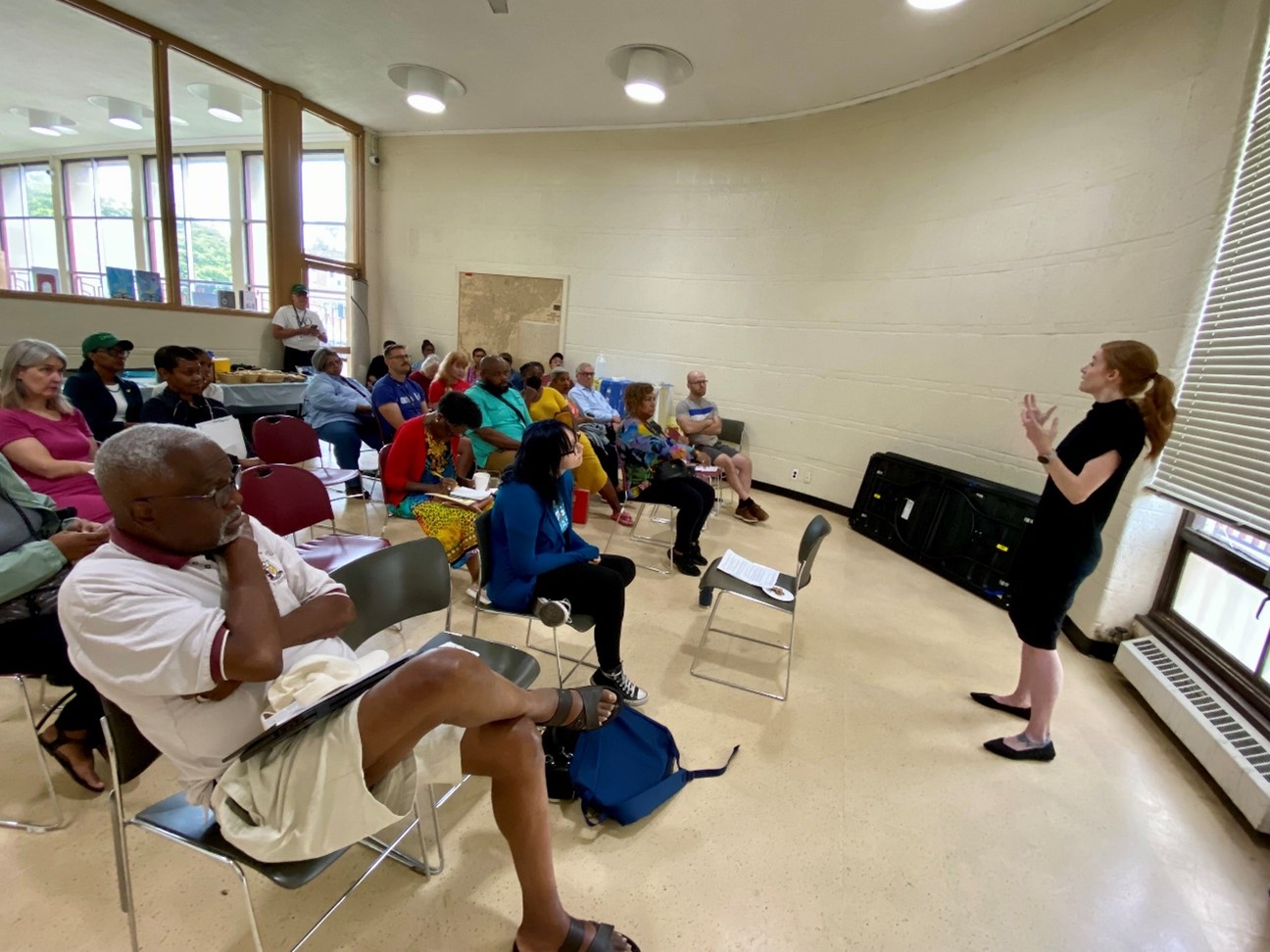
Recently, I had an in-person coffee hour at the Sherwood Forest Branch of the Detroit Public Library. I gave updates from Lansing, and we had a robust Q & A discussion. I am appreciative that Councilmember Angela Whitfield-Calloway stopped by! Thank you to Detroit Rosa for the delicious coffee and many thanks to all who attended.
Residents asked questions about how to combat rising home ownership costs especially in relation to seniors who may want or need to downsize, frustration with DTE price increases as well as water affordability and quality concerns, investing in the education system in Detroit, and much more.
I will be doing regular livestreams during the fall session, giving legislative updates and taking questions live! Follow me on Facebook, Twitter, Instagram, LinkedIn, and YouTube.
Girlz Empowered
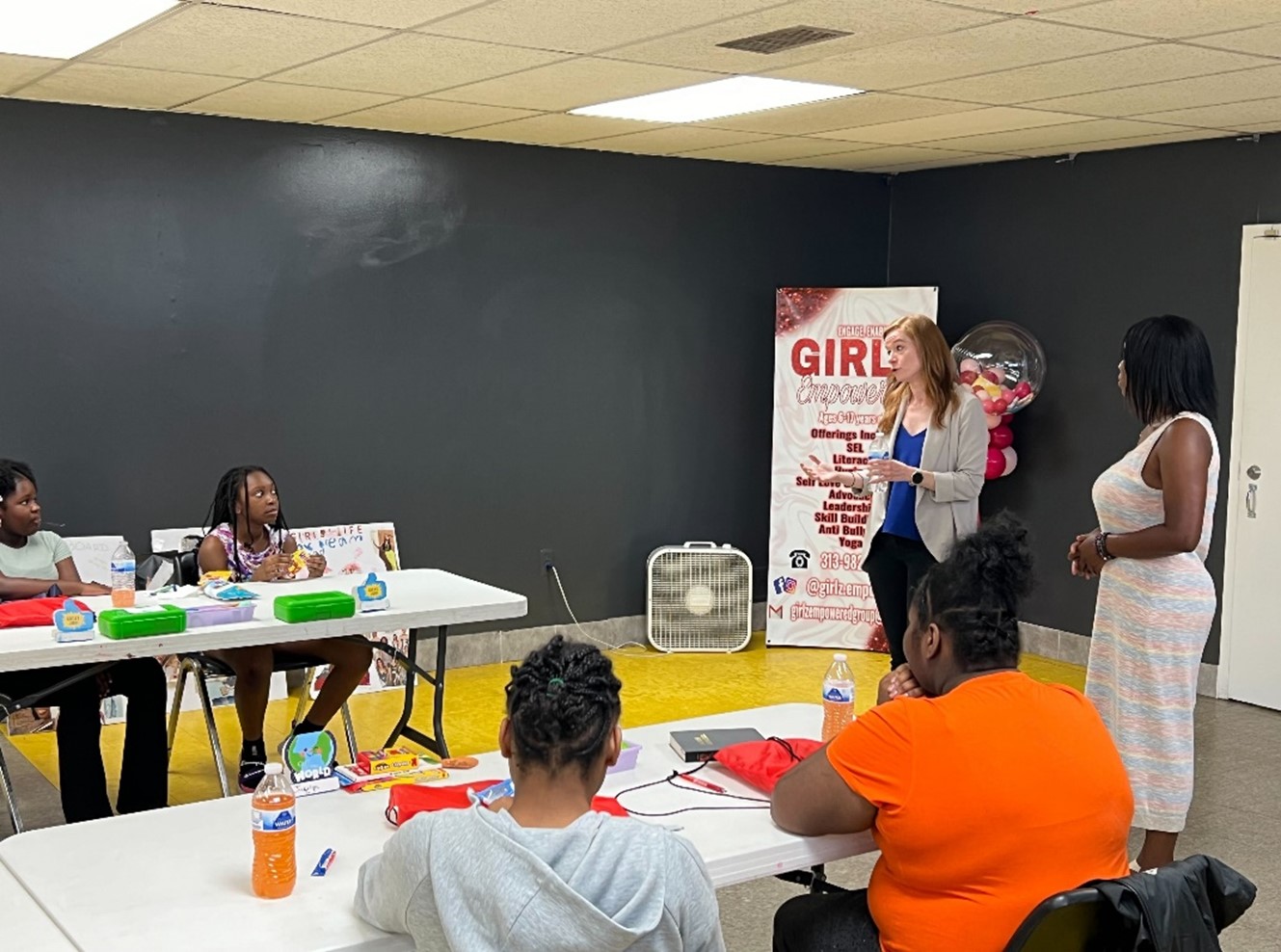
The Girlz Empowered program in Detroit teaches girls from ages 8-18 the fundamentals of mental health, personal hygiene, STEM, yoga and more. I was able to tour the facility and learn about the curriculum. We talked about women representation in government, reproductive freedom, repealing the Tampon Tax, and working on having free menstrual products available in all schools. The girls were all curious to hear more about what I do as a State Senator! Thanks to Chantia Thompson for inviting me to see what your program has to offer to this new generation.
Scuola Creativa

Scuola Creativa is a new early childhood education center in Royal Oak that focuses not only on daycare, but the important principles of early education, peer interaction, communicative skills and much more. During my tour, we discussed the quality of education in both Michigan and across the country, government funded programs to provide free pre-school for 4–5-year-olds, and the prohibitive cost of childcare for families. Having access to affordable early childhood education lays the foundation for cognitive, emotional, and social development, which shapes a child’s ability to learn and interact with others throughout their life. This investment fosters resilience, creativity, and a love for learning, which can positively impact both their future academic and personal success.
Good News From the District
There are fantastic events in the district all Labor Day Weekend with something for everyone!

For 45 years, the Detroit Jazz Festival Foundation has celebrated Detroit’s rich history of jazz music by providing year-round concerts and educational programming and organizing the world’s largest free jazz festival all Labor Day weekend! The festival is free to music fans looking to revel in the artistry and improvisation of jazz legends, rising stars, legacy and homecoming artists. Detroit Jazz Festival Official Website

Soaring Eagle Arts, Beats & Eats is Oakland County’s celebration of art, music, food, and community taking place in Downtown Royal Oak over Labor Day Weekend. The festival attracts hundreds of thousands for an end of summer celebration!
On Friday, 8/30 the festival is free to enter until 5:00 p.m. After 5:00 p.m., the price is $12. On Saturday, Sunday, and Monday, admission is $10 before 3:00 p.m. and $12 after 3:00 p.m. The admission fee supports the festival as well as 14 non-profit partners. Soaring Eagle Arts Beats & Eats (artsbeatseats.com)
